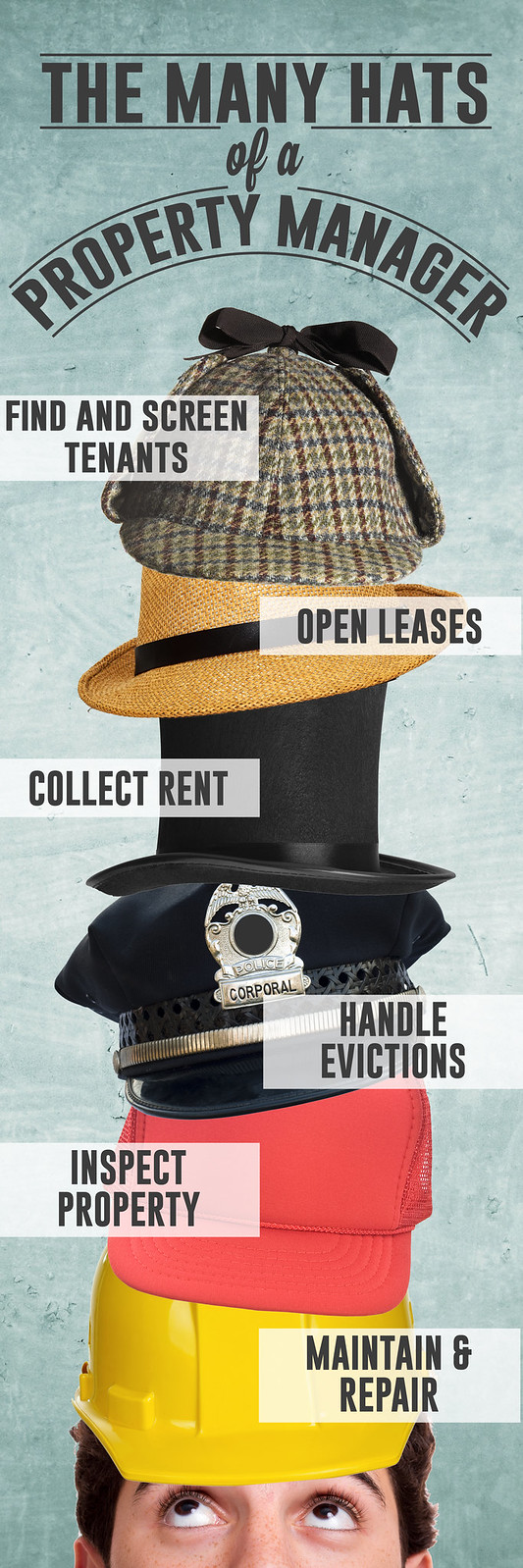Have you ever heard someone mention property management? Most likely you didn't think about it much; it seems fairly self-explanatory. Property management is someone who manages property. Have you ever thought about what that entails, though? Property managers have to wear many different hats to take care of the property entrusted to them. Depending on the kind of property and how large it is, a property manager could have a dozen different roles they play. Keep reading to learn more about what property management is and how a home warranty can help take some of the responsibility off the manager.
What does a Property Manager Do?
Property managers have to wear a lot of different hats in order to take care of property, including:
Finding and Screening Tenants
A property manager is usually the one who advertises the property and finds tenants who want to move into the building. This involves creating listings and advertising with signs, ads and fliers. Then, when a possible tenant applies for the rental property, they screen them to see if they're people who qualify to live on the property. Some property managers create monetary and credit restrictions to screen out tenants who could not pay rent or do not make enough to live in the building.
Opening Leases
After finding tenants who are trustworthy, a property manager opens a lease with the tenants. This involves scheduling move-ins with the tenant, scheduling rent payments, setting up rental insurance, completing a move-in condition report and making sure all legalities are completed.
Collecting Rent
After the tenant(s) are moved into the rental building, the property management's job is then to collect rent at a specified time each month. They have to be extremely organized and make sure that none of the tenants are behind in their payments. If they are behind in their payments the property manager has to keep track of late payments and late fees, sending out notices, and in the unfortunate event of an eviction, evict non-paying tenants.
Handling Evictions
Evictions are more than just kicking a non-paying tenant out of the property. There are legal steps that a property manager has to take in order to evict a tenant. Usually this involves filing paperwork and possibly representing the owner in court if the owner cannot attend. The property manager also has to talk to law enforcement to remove the tenant from the property.
Scheduling Move Outs
When a tenant is moving out, a property manager has to help schedule the move out and then start the cycle over by finding new tenants for the home. A good property manager will show the property to interested parties and have a new tenant ready to move in as soon as the old tenants vacate the building.
Provide Inspections
Many property managers want to make sure the buildings are being kept clean and tidy through the length of the lease. Not only does this make cleaning up after the tenant leaves easier, but it increases the property value of the home or condo. Property managers usually schedule inspections to ensure that the home or condo is being kept clean, and the maintenance on the systems and repairs is up to the manufacturers recommendations.
Providing Maintenance
For most properties, tenants don't provide a lot of maintenance on their systems and appliances. Generally a property manager schedules maintenance for air conditioners, furnaces, water heaters and more. Usually this maintenance occurs between tenants, but they also could provide the maintenance at scheduled times with the tenant. The property manager finds trusted contractors who will complete this maintenance on all of the systems and appliances throughout the home or condo.
Providing Repairs
If something on the property breaks down, tenants are instructed not to try and fix it themselves, and instead alert the property manager. The property manager should find a contractor to complete the repair. To save on money, a property manager could also purchase home warranty coverage for their property.
Property Management and a Home Warranty
How does a home warranty fit into this equation? It can save a property manager thousands of dollars on home repairs! Of course, there are a few differences of home warranty coverage options when it comes to different properties. If the property manager has an apartment complex, Landmark will not provide coverage on it as it is a commercial property.
If the property manager is taking care of a condo or townhome where there are shared systems between the two units, everything in the contract except the shared systems will be covered. If one tenant is providing maintenance on the shared system (let's assume this is stipulated in the lease) and the other tenant isn't, it's hard for a home warranty company to place blame on one tenant over another.
If the property manager is taking care of homes that are being rented out, purchasing home warranty coverage is a perfect option. According to the National Home Builder's Association, homeowners spend around $4,000 a year on repairs and alterations. Home warranty coverage costs between $300 and $600 a year, with a $60-$100 service call fee. This service call fee is a flat rate fee the homeowner pays to the contractor who repairs or replaces their failed system or appliance. According to Landmark's data, contract holders on average open 1.7 service requests per year. That cuts repair spending to a third of what homeowners normally pay. A property manager can purchase home warranty coverage and save money when it comes to providing repairs for their tenants.
How Property Managers are Paid
Property managers are paid by getting a percentage of the rent, a flat rate fee ($50 for each unit with a tenant living there) or by providing rent to the property manager at a lesser rate, so they can sublet the apartments for more money.
Are you a property manager looking to order a home warranty on your property? Head on over to Landmark's compare plans page to see which is the best option for you and your tenants.





